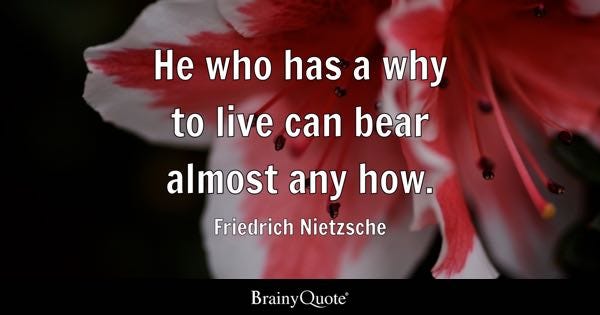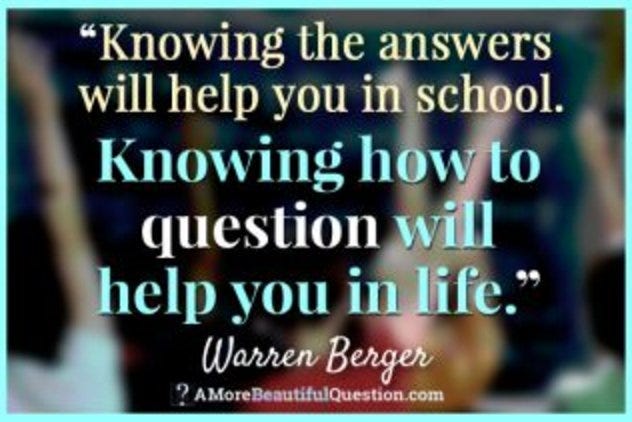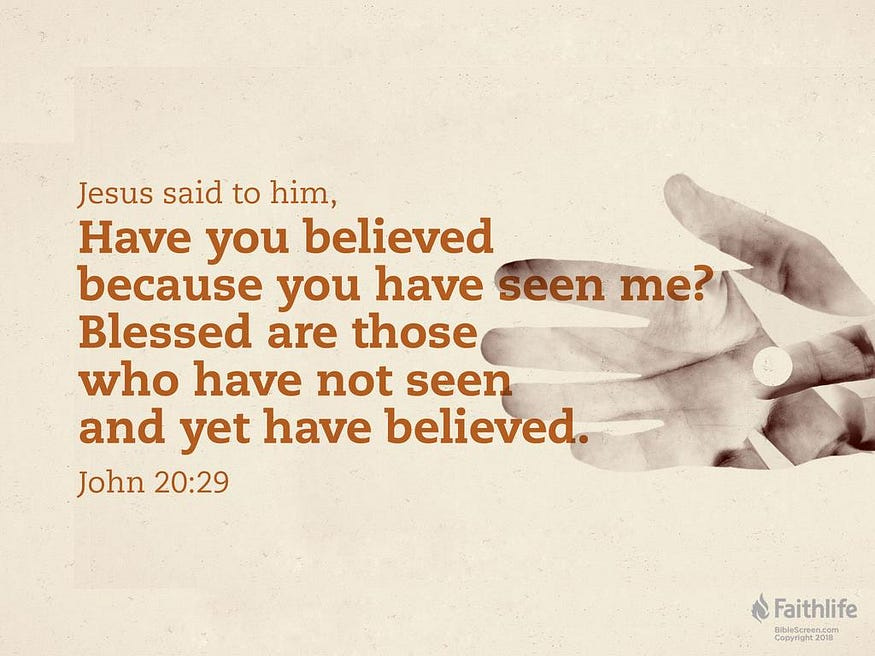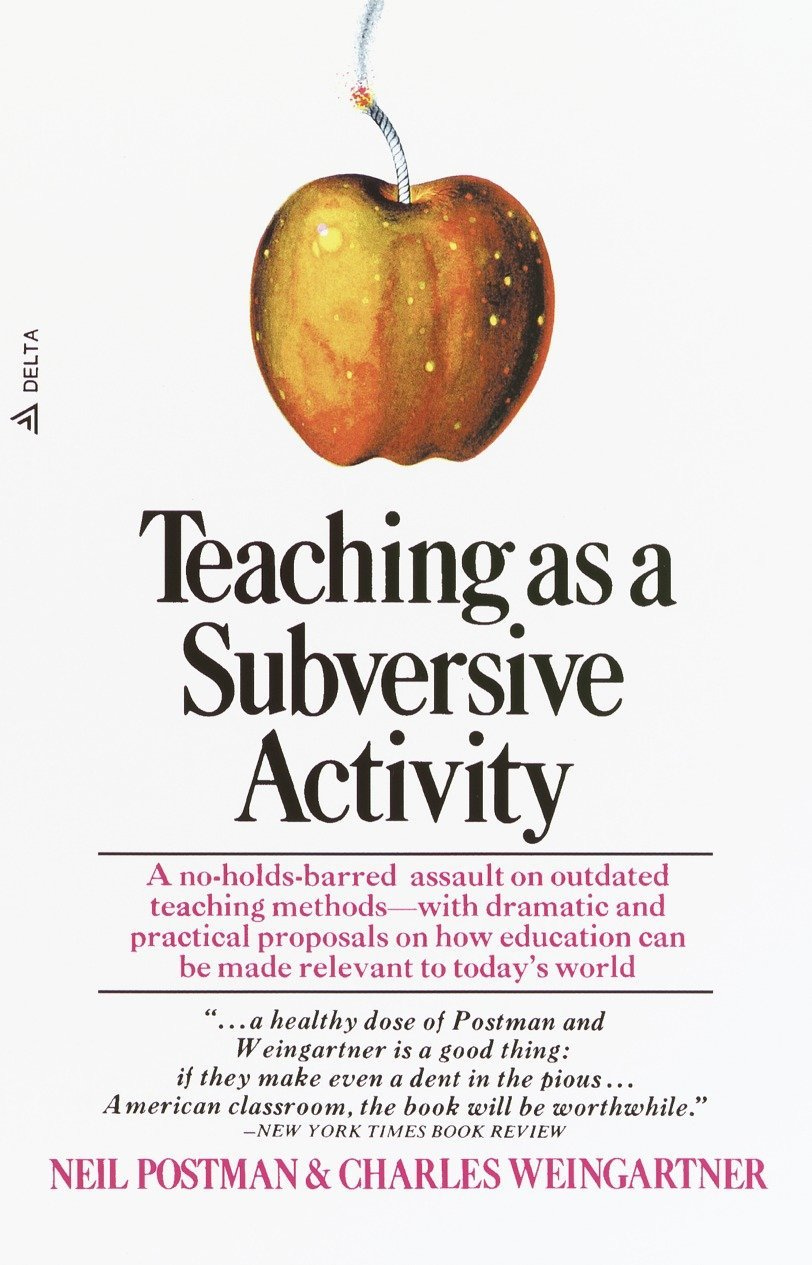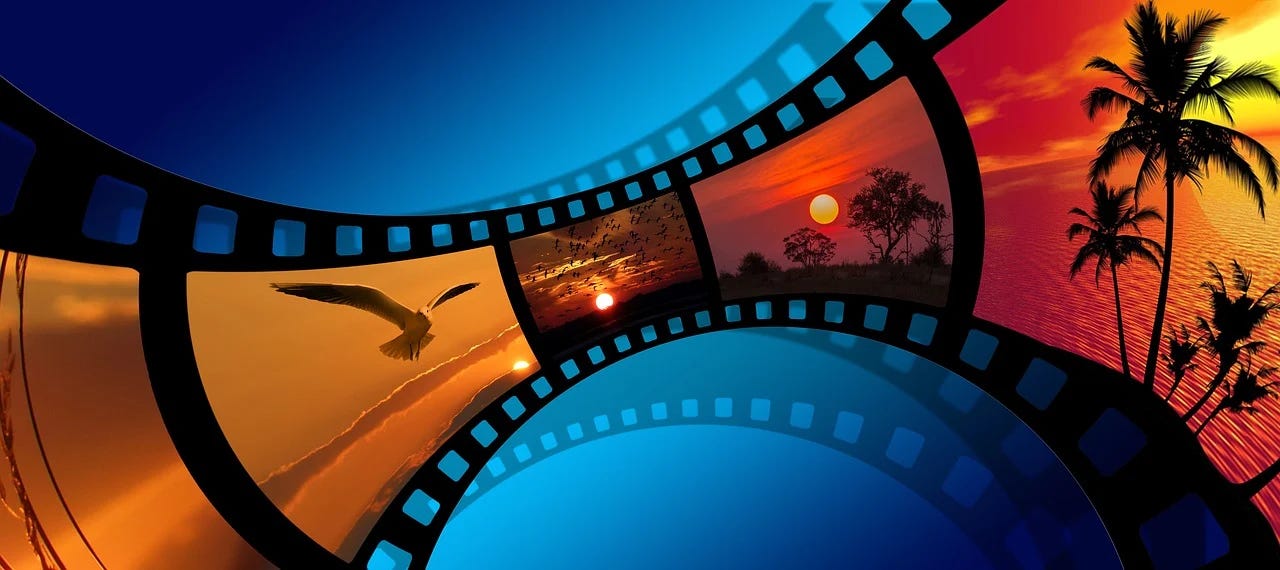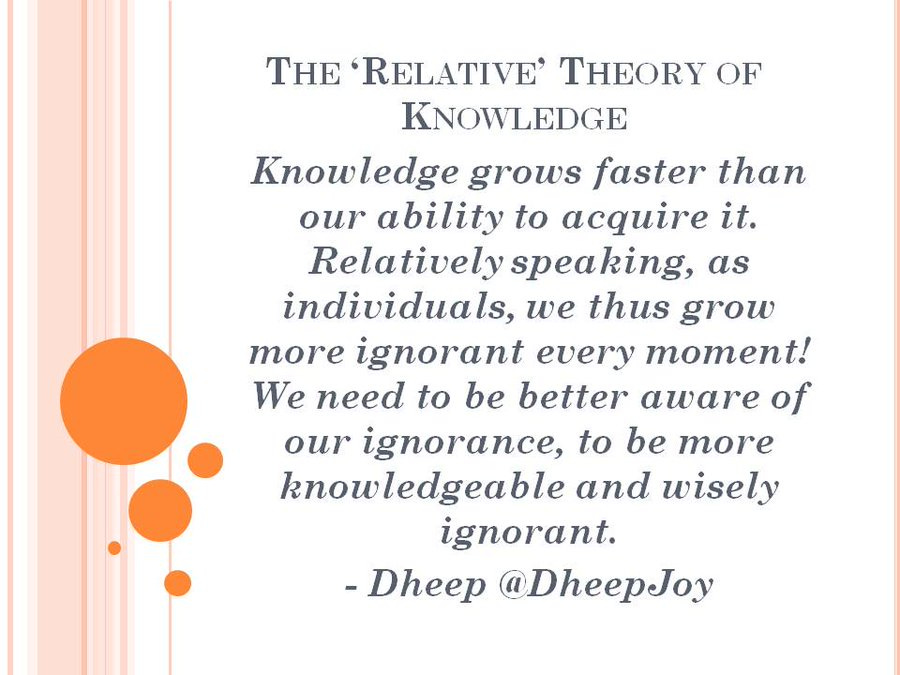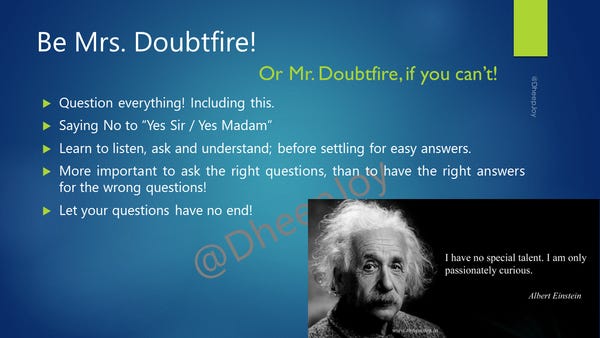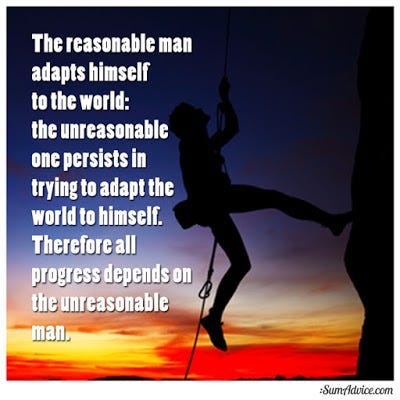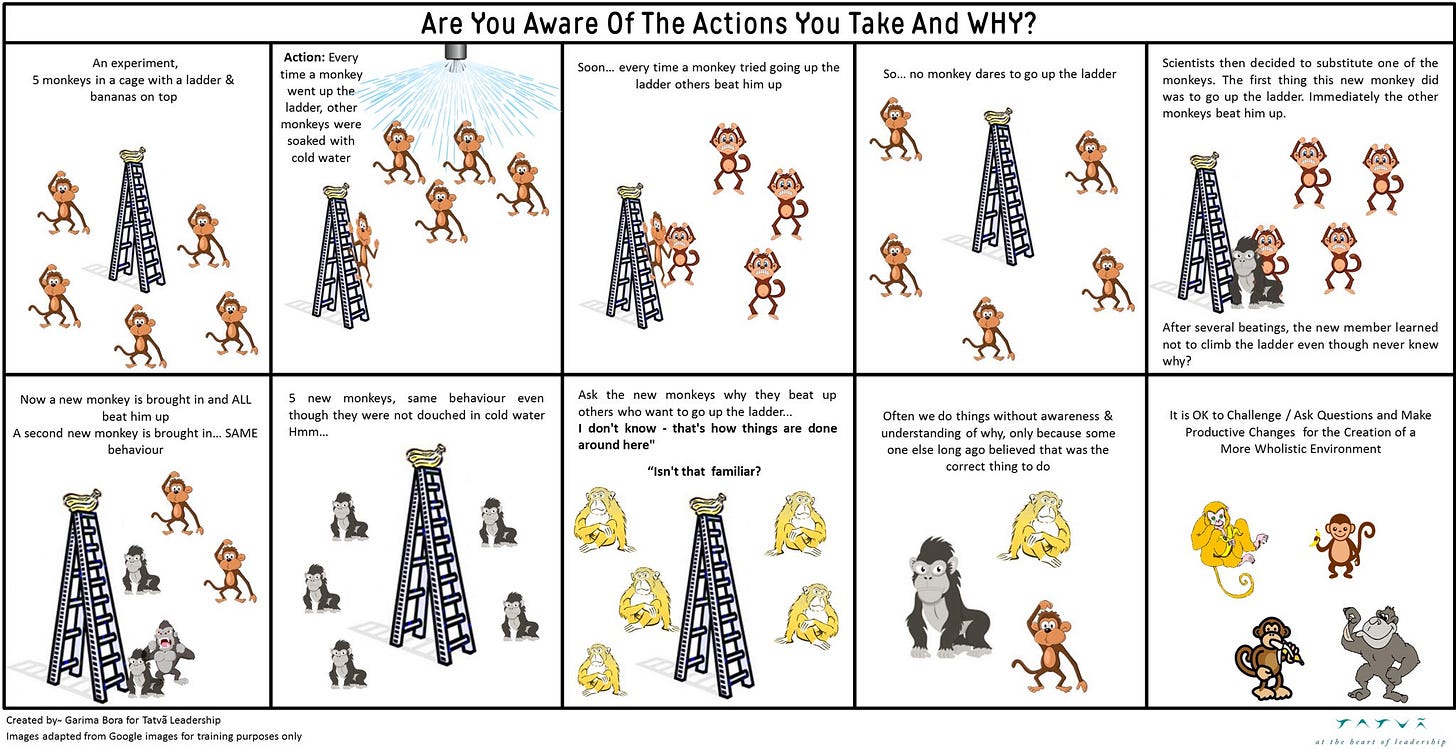#NotJust Answers: Are(n't) Questions at least as Important?
Reflections on the role and value of questions in our lives; and why we need to search for #NotJust answers but for questions also, even old questions!
Hello Dear,
How are you? Are you enjoying life? Well, this begs the question: is life something to be enjoyed? Or is it something to be #NotJust enjoyed? Maybe it is just to be lived? And maybe living life is a higher and more difficult form of relating to life, and of being and becoming, than enjoying life?
Oops, this question of enjoying life once again reminds me of the two posts below. (If you have been reading this #NotJust newsletter, then you may have perhaps found me referring to one or both of these two posts quite often! If you have not been reading it, then I need not bother myself about referring you to the same post again and again.)
Do We Really Die When We Are Dead, and Live When We are Alive?
Reflections on the meanings of life and death, on what it means to live and be fully alive; in life, in death and after death.
#NotJust Sufferings: Are(n't) they Blessings too?
Reflections on the age-old condition and phenomenon of human pain and suffering, and our eternal quest to find life and meaning in, through and beyond them.
Coming back to the first question of this post, i.e., “how are you?”, I am wondering whether the more important, helpful and useful questions are perhaps, “who are you?” and “why are you?”.
This in turn reminds me of the following saying:
He who has a why to live can bear almost any how. - Friedrich Nietzsche
Having thus discussed questions which spring from questions, let us discuss questions and questioning. I must say that this is something which is very close to my heart, and, I think, an integral part of who I have come to be. And yes, we have already touched upon this theme in various forms, in the previous posts in this #NotJust Newsletter.
So, here is an interesting brief conversation I had with a senior colleague, an officer of the Indian Information Service, less than two months ago. The officer was telling about me and my writings, to another officer who was also present with him. Noting that most of my messages tend to be questions, the officer made the statement that it is high time, given the length of my experience - 11 years - in the IIS, that I also provide answers, rather than just ask questions.
Well…let me now share one short article I wrote almost exactly six years ago.
[Beginning of a short article I wrote on October 6, 2017]
A Q & A between Q and A
This is a short story of two friends, Q and A.
Q always used to have the As, since she always asked Qs.
A had only Qs, since he was fixated only on As!
Q wanted to help A find As.
And Q had them already.
But there was a catch!
Q realized that telling A the As could lead to A never seeing them as As.
Q had to hence ask Qs to A — the type of Qs that led A to the As.
Slowly and unknowingly, A became ready to confront the Qs.
Q was always available to reflect along with A on the Qs.
This allowed A, over time, to discover the As himself.
Yes, A was able to get the As only and precisely because Q did not tell them to him.
And here is something which both Q and A realized:
“Only what is not said is really understood from the depths of the heart”.
Indeed, they did not have to tell this to each other.
(Inspired by Clayton Christensen)
- Dheep
[End of the short article I wrote on October 6, 2017]
What do you think of the above? How much of truth does it contain? And what are the various domains of life in which this principle is applicable? Well, the above reflection reminds me that it is this philosophy which is being advocated in one of the books I am now reading. The book is one written 54 years ago, titled Teaching as a Suversive Activity, by Neil Postman and Charles Weingartner.
As I said, I am still reading the book…this raises another question..If I finish reading the book, does that mean that I am no longer reading the book?
I think a great book is one which we are reading all the time, every single moment.
So, this raises the further question as to what we mean by reading, what it is and what it is not. I would think that:
In the final analysis, reading a book and living a book become indistinguishable, one and the same. Great books are lived and lived by and lived off, as much as they are read.
This reflects a very popular misconception, that the best use that can be made of a good book is to read it once, and then be done with it. As the angel investor Naval Ravikant says, there is immense value in rereading. According to him, one should read the best 100 books over and over again.
Indeed, we can see that this is built on the belief and philosophy that there is an infinite fount of inspiration and beauty in any great work of art or science in which we can potentially immerse ourselves. We have already explored this question at some length - or in some shortness - here.
#NotJust Films: Can We Ever Really Watch Any Film Completely?
Reflections on the Infinite Beauty of Art and of Life; and what this Infiniteness could Mean for the Ways in which we could Relish and Cherish this Beauty!
The above reflection brings to mind another question which my wife keeps asking me now and then [earlier, my mother too used to ask this, but now she has reduced the frequency of this question]. As to why I buy “so many” books, whether I am able to read all of them. Also that why don’t I donate or give the books I have read to someone else, so as to save space at our house.
Well, part of the answer to this question relates, once again, to what we mean by reading on the one hand, and what are the various ways of relating to and being inspired by a book on the other hand. Now, we have explored the dual role of knowledge and ignorance in our life, in the various ways in which each can further or can be a hindrance to our understanding and wisdom. In the same vein, we can argue that:
There could be immense value in having a book by your side and not reading it, as much as in reading it.
On the one hand, this is related to The Curse of Knowledge, where knowledge stands in the way of further knowledge; on the other hand, the source of this value lies in what Nassim Nicholas Taleb calls the concept of the antilibrary. I have been imagining many other anti-concepts as well, such as anti-books, anti-reading and more. Hope to explore these later. For one, I believe for each one of us, there is an anti-I as well, such as an anti-Dheep in my case. 😊
Ok, coming back to what I was about to say on Neil Postman’s book above…I was saying that I am still reading it, but that I am delighted to have discovered that one essential attribute of the teaching philosophy espoused by Postman and his coauthor is based on the ignition of the spirit of inquiry in students. Wow, I am so happy to entertain the very thought…😊since that is all I want to do, be and become.
So, coming back to questions, here is a slightly edited excerpt from an earlier post.
Be Curiouser and Curiouser
Never underestimate the power of good questions! Our knowledge is much more limited than we realize. I grow more ignorant everyday! Almost surely, so do you - relatively speaking!
Hence, it is better for me to think that I know but little. And this in turn should inspire me to keep asking questions. Asking good open-ended questions can both surprise and delight us. It gives us new ideas and ways of looking.
I would add that it is especially important to ask questions whose answers we are sure of. Why? One, the more certain we are, the more dangerous it will be if we are wrong or plainly incomplete in our answer. Two, our answer may be perfect, but we need to understand others’ answers too, in order to both better understand the situation as well as to come to a shared point of view about our shared being and becoming.
The above short excerpt is from the following post.
Being and Becoming Your Best
Reflections from Experiences of Inexperience, on Realizing our Potential.
Let me share two other pieces of reflection I have written on the same subect of questions and questioning.
[Beginning of a piece of reflection I wrote in May 2022]
Break Rules
Yes, we need more of breaking rules, not breaking news.
“The reasonable man adapts himself to the world; the unreasonable one persists in trying to adapt the world to himself. Therefore, all progress depends on the unreasonable man.” - George Bernard Shaw
Ceaseless questioning of dogma, received wisdom, convention and groupthink is imperative to progress. By respectfully challenging the status quo, we can discover both the inspiration that connects the past to the present as well as the inspiration to weave the future from the past and the present, even if it is by making discontinuous change.
When we stop questioning, we cease to live.
Good day. 😊💐
[End of the piece of reflection I wrote in May 2022]
Though I said “break rules” above, I have later come up with a refinement of the above:
We need to break unwritten rules and follow written rules. Often, we end up following unwritten rules and breaking written and codified rules.
I think this is one of the essential keys to creativity and positive change: breaking unwritten rules while following written rules. Of course, in many cases, the written rules too need to be changed, not denying that.
Let me share one more piece of reflection, which brings into sharper relief the danger of not questioning.
[Beginning of a piece of reflection I wrote in April 2022]
The Monkey in Us: Story of An Incomplete Evolution
5 monkeys were placed in a cage as part of an experiment. In the middle of the cage was a ladder with bananas on the top rung. Every time a monkey tried to climb the ladder, the experimenter sprayed all of the monkeys with icy water. Eventually, each time a monkey started to climb the ladder, the other ones pulled him off and beat him up so they could avoid the icy spray. Soon, no monkey dared go up the ladder.
The experimenter then substituted one of the monkeys in the cage with a new monkey. The first thing the new monkey did was try to climb the ladder to reach the bananas. After several beatings, the new monkey learned the social norm. He never knew “why” the other monkeys wouldn’t let him go for the bananas because he had never been sprayed with ice water, but he quickly learned that this behaviour would not be tolerated by the other monkeys.
One by one, each of the monkeys in the cage was substituted for a new monkey until none of the original group remained. Every time a new monkey went up the ladder, the rest of the group pulled him off, even those who had never been sprayed with the icy water.
By the end of the experiment, the 5 monkeys in the cage had learned to follow the rule (don’t go for the bananas), without any of them knowing the reason why (we’ll all get sprayed by icy water).
If we could have asked the monkeys for their rationale behind not letting their cage mates climb the ladder, their answer would probably be:
“I don’t know, that’s just how it’s always been done.”
This story, whether real or a fable, captures a pervasive theme in many organizational cultures:
We tend to do things the way we’re told they’ve always been done without questioning or revisiting the reason behind it, even long after that reason ceases to exist.
Short reflection: You know, it is funny, often, when I ask people why something is done in a particular way, the answer they give me is that “this is how we have done it all along”. Not just that, what makes it doubly tragicomical is that they use this very reason to justify and argue that we should keep doing it exactly the same way. 😊
(h/t: I got the above image from here)
[End of the piece of reflection I wrote in April 2022]
As I wind up, I just now realized that this post is quite similar to the very previous post!
#NotJust "Following": A Case for Thinking, Reflection and Listening
Reflections on the need for thinking for ourselves, for engaging in shared reflections on our shared past, present and future.
Let us stop here for now. I must say that while I have no doubt that I wish to write more and more, I doubt whether I should continue writing this #NotJust Newsletter, whether maybe I should abandon this and take to other forms of writings.
Anyway, I wonder whether you find some value in this post. I would be grateful if you let me know either way. And speaking of the #NotJust newsletter as a whole, how can it get better? Should it get better, maybe it is better abandoned? Thank you for your presence, and your invaluable time and attention! - Dheep.






